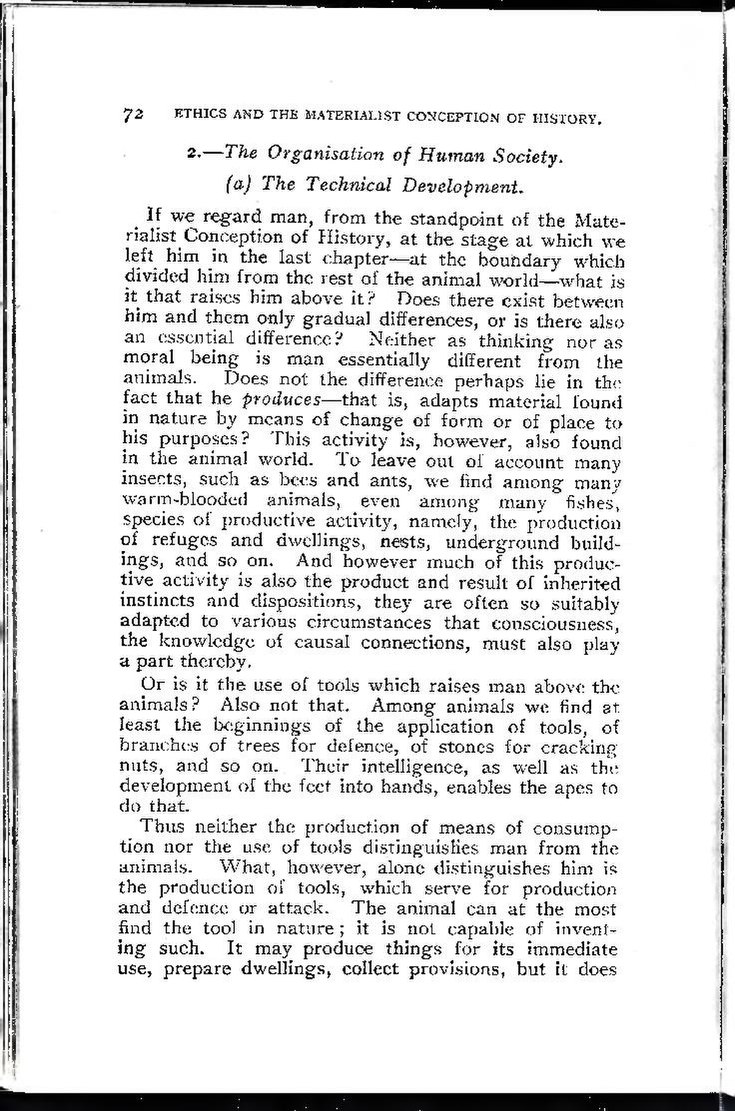2.—The Organisation of Human Society.
(a) The Technical Development.
If we regard man, from the standpoint of the Materialist. Conception of History, at the stage at which we left him in the last chapter—at the boundary which divided him from the rest of the animal world—-what is it that raises him above it? Does there exist between him and them only gradual differences, or is there also an essential difference? Neither as thinking nor as moral being is man essentially different from the animals. Does not the difference perhaps lie in the fact that he produces—that is, adapts material found in nature by means of change of form or of place to his purposes? This activity is, however, also found in the animal world. To leave out of account many insects, such as bees and ants, we find among many warm-blooded animals, even among many fishes, species of productive activity, namely, the production of refuges and dwellings, nests, underground buildings, and so on. And however much of this productive. activity is also the product and result of inherited instincts and dispositions, they are often so suitably adapted to various circumstances that consciousness, the knowledge of causal connections, must also play a part thereby.
Or is it the use of tools which raises man above the animals? Also not that. Among animals we find at least the beginnings of the application of tools, of branches of trees for defence, of stones for cracking nuts, and so on. Their intelligence, as well as the development of the feet into hands, enables the apes to do that.
Thus neither the production of means of consumption nor the use of tools distinguishes man from the animals. What, however, alone distinguishes him is the production of tools, which serve for production and defence or attack. The animal can at the most find the tool in nature; it is not capable of inventing such. It may produce things for its immediate use, prepare dwellings, collect provisions, but it does
